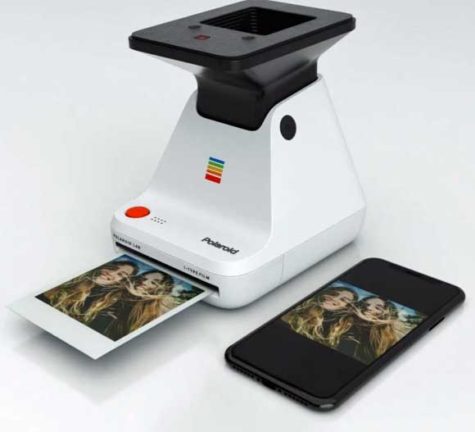A concise round-up of new product updates, international snippets and other interesting stuff from the wonderful world of photography: Canon to charge subs for software…Sigma to drop K-mount…Polaroid versus…The Void of Oblivion!
Canon to charge subs for software
Canon has confirmed that it will be charging a subscription fee for its Digital Photo Professional (DPP) Express iPad app from October.
The iPad-only DPP Express app works with Canon Camera Connect app to process JPEG and CR3 Raw files from Canon cameras. The application is designed to make basic adjustments and edits to images on the go.
Canon seems to be showing a fair bit of hide in deciding to charge for this particular bit of software – it doesn’t even rate 2 stars at the iOS Apple store. And given that it will still be possible to transfer CR3 files from compatible cameras to mobile devices via the 9still free) Canon Camera Connect app, it’s not likely to generate rivers of gold. More like streams of resentment.
Sigma drops K-mount
Sigma has announced that it will no longer manufacture lenses for Pentax K-mount cameras attributing the decision to dwindling numbers of Pentax cameras sold. The company has stated it will be focussing (yo ho ho) on developing mirrorless camera lenses. Sigma has announced its own L-mount full-frame mirrorless camera, the Sigma fp.
The other large third-party lens manufacturer, Tamron, also doesn’t have much in the way of K-mount inventory. Pentax fortunately supports its customers with a decent range, and without the ‘loyalty premium’ Nikon and Canon tend to whack on their optics.
Polaroid versus…The Void of Oblivion!
Polaroid is having another go at a smartphone-to-instant product, in the form of Polaroid Lab.

Polaroid is touting the system as a kind of insurance policy against the ephemeral nature of digital images.
‘Unlimited cloud storage can actually be your memories’ worst enemy; it causes your digital photos to skyrocket in numbers and end up falling into a void of oblivion. The idea behind the Polaroid Lab is that it turns your most precious smartphone photos into tangible Polaroid photographs; bringing them into the world as something you can hold in your hand and store on the fridge door rather than in the cloud,’ explained Oskar Smolokowski, CEO of Polaroid.
The Polaroid press release is a hoot – it makes out what is essentially a duplication of the image on the smartphone’s screen onto Polaroid film into something approaching alchemy: ‘The Polaroid Lab has a three-lens developing system which functions as a miniature tabletop darkroom; it uses the unique Polaroid chemistry to transform smartphone photos into classic Polaroid film photos.’
It goes on: ‘Then, using a combination of mirrors, light and the unique Polaroid chemistry, the image is recast as an instant photo that ejects from the Polaroid Lab. After the usual development time, the digital image is now a full-fledged Polaroid photograph.’
The Polaroid Lab provides ‘unprecedented creative control over your pictures before turning them into Polaroid pictures.’
No local release details but in the US the Polaroid Lab has a retail price of US$129.99.





Be First to Comment